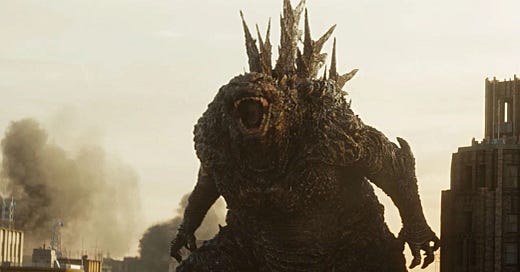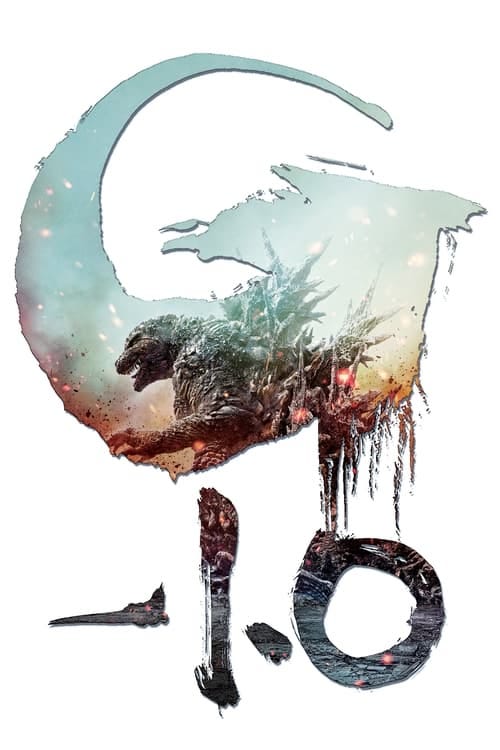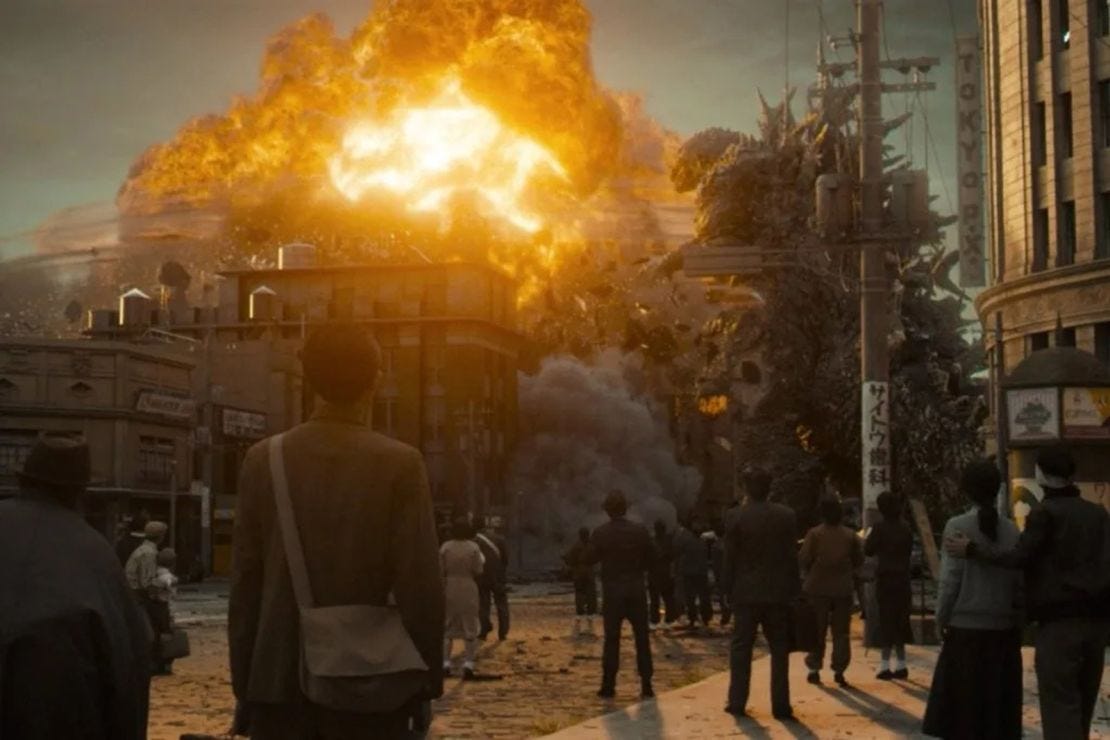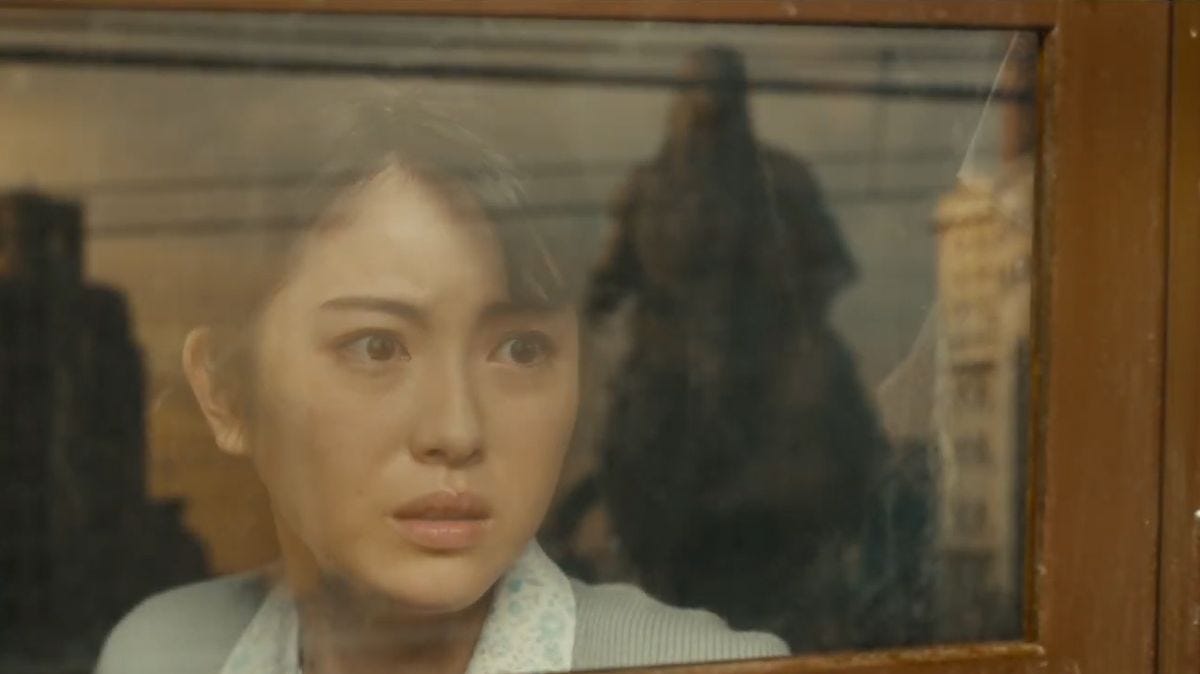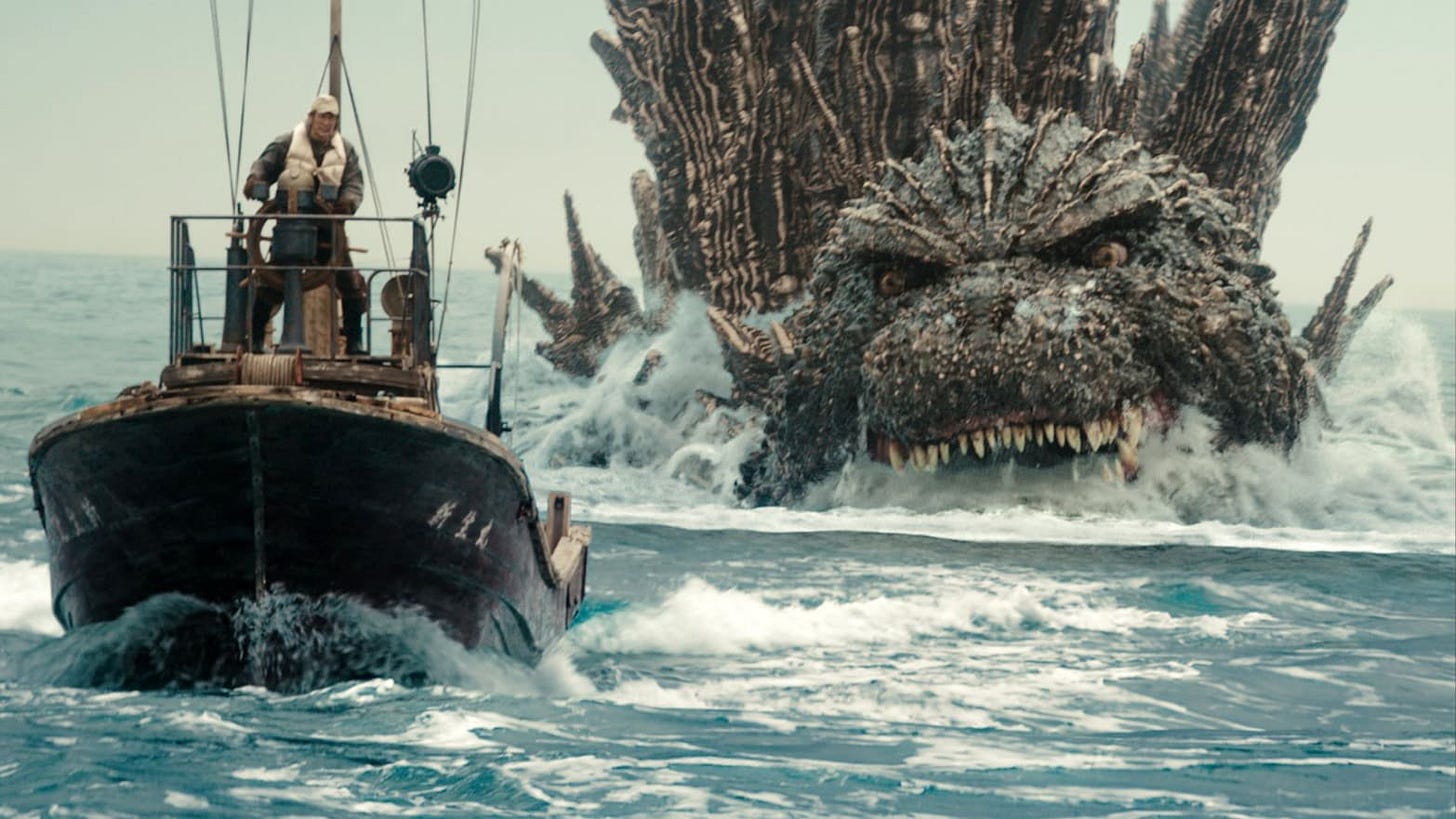Directed by Takashi Yamazaki
Japan, 2023
1945, Japan. As World War II nears its end, a Kamikaze pilot touches down on a remote repair station in the Pacific, claiming engine trouble. Night falls, and they come under attack—but not by the usual arsenal of the Allied forces. This threat is even more destructive, more ruthless. Emerging from the depths, cued by the haunting strains of the classic theme: Godzilla.
We are then thrown into the action as the towering lizard claws at one soldier, bites another in half, and takes out a few more with one swipe of his hefty tail. The soldiers shoot back, but their petty bullets are mere pinpricks against Godzilla’s thick, reptilian hide. The outright brutality of Godzilla Minus One is a stark contrast to the more family-friendly string of monster flicks produced by Hollywood in recent years. The commonly used ‘misunderstood monster’ trope – where the creature, antagonised by a greedy and militaristic humanity, has to be wooed out of its rage by a soft-hearted protagonist – is out of sight here. This Godzilla is an unstoppable force who cannot be reasoned with and ReidsonFilm agreed that director, Takashi Yamazaki, didn’t pull any punches when translating the modest $14 million budget into an impressive display of cinematic devastation.
Yet, beyond the fire and the fury, Godzilla Minus One finds room for a deeply human story. At its centre is failed Kamikaze pilot, Kōichi (Ryûnosuke Kamiki), burdened by survivor’s guilt. However, an unexpected bond with Noriko (Minami Hamabe), a resilient woman he meets in Tokyo, along with a newfound responsibility for an orphaned child, Akiko (Sae Nagatani), puts him on a path to redemption. Not through self-sacrifice but instead through collective action. ReidsonFilm saw shades of Jaws when Kōichi and his new, ragtag group of colleagues – originally tasked with disarming sea mines – find their mission turning into a deadly hunt for Godzilla. The tone is often melodramatic, and frequently veers into comedy. Corny? At times, but the narrative has heart and sincerity, grounding the film in a broader reflection of Japan’s wartime legacy.
One member of ReidsonFilm, having recently travelled in Japan, was struck by how the country presents its wartime history – largely framed around the atomic bombings of Hiroshima and Nagasaki, while Japan’s imperial history and alliance with Nazi Germany are less emphasised. Godzilla has traditionally been associated with the post-war angst surrounding nuclear weapons and perhaps, a critique of American actions.
Godzilla Minus One, however, feels like a shift. While still steeped in the trauma of nuclear devastation, it also attempts to reckon with Japan’s own past – the cost of blind nationalism and the futility of glory-driven martyrdom.
Reids’ Results (out of 100)
C - 80
T - 77
N - 75
S - 80
Thank you for reading Reids on Film. If you enjoyed our review please share with a friend and do leave a comment.
Coming next… The Passion of Joan of Arc(1928)

